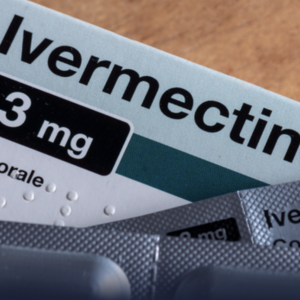During a conversation hosted by the Center for Strategic and International Studies, Dr. Anthony Fauci spoke longingly of a pill that could beat COVID-19. “Give me that and I’ll be really happy,” he said.
Good news, Dr. Fauci: one already exists. It’s called ivermectin. Now if only health organizations would let doctors use it and the media would stop censoring those arguing its promise.
In clinical trials, this orally administered drug reduced transmission of the virus and prevented deaths among those infected with it. Ivermectin quickened their recovery time too. These results are drawn from numerous studies conducted across the world. I’ve carefully analyzed them with a team of physician-scientists and published meta-analyses. Digging into those numbers, our research shows a striking 65-75 percent reduction in mortality among COVID-19 patients treated with the drug.
It’s not only effective. Ivermectin, originally approved to fight parasitic infections in the early 1980s, has since gone off-patent. Generics are readily available. So it’s both safe and inexpensive.
And it’s already being put to use against COVID-19. Ivermectin is approved in Bulgaria and Slovakia. It’s also reducing deaths in parts of India, Mexico, Peru, and Bolivia among other nations.
Pharmaceutical companies like Merck have downplayed ivermectin’s potential. They, along with Pfizer, are developing their own COVID pills. Former government officials such as Dr. Scott Gottlieb are cheering them on in the search for a new patented oral therapy.
What’s clear though 20 months into this pandemic that we must use every weapon at our disposal to stop the virus. Yes, we must follow the science. But that means actually reassessing and reconsidering treatment options as our understanding of COVID-19 continues to grow.
Early in the pandemic, the World Health Organization and the Food and Drug Administration warned against using steroids to treat those stricken with COVD-19. But those of us who were working with patients on the frontlines saw how effective they were in turning back the virus. Today, both agencies recommend using steroids.
The point here is not to chide those organizations but to stress that the discovery of new answers hinges on our willingness to have our previous assumptions proven wrong, to welcome open dialogue about what works and what doesn’t.
That’s not happening now. In fact, the opposite is.
Frontiers in Pharmacology accepted our peer-reviewed paper on the drug only to later reject it because of an anonymous claim that our research was unsupported.
A video of my Senate testimony supporting the use of ivermectin, which had over 8 million views, was yanked by YouTube. The platform has flagged any talk highlighting the evidence-based effectiveness of the drug as “medical misinformation.”
Evolutionary biologist Bret Weinstein, on whose Darkhouse podcast I have appeared, was demonetized for discussing ivermectin.
We have reached the point where institutions are shutting down evidence-informed conversations about how to address rapidly evolving medical emergencies. This censorship isn’t fitting of a democracy, and it should outrage those who claim to support for science.
Tremendous progress has been made in our understanding of and ability to stop COVID-19. But many people are still resisting vaccination. The delta variant has spiked infection and hospitalization rates. Governments can resort to vaccine mandates or passports or even reinstate lockdowns. These, though, are deeply divisive measures that will require great resources and come with economic and social consequences.
Given this, why are we not giving doctors and patients access to a drug that has the documented ability to treat and stop COVID-19? And one that can also help relieve the stress our supply chain will feel as it eventually distributes booster shots for existing vaccines?
The National Institutes of Health should recommend ivermectin for the treatment of COVID-19 and do its part to raise awareness of the drug as an option for patients. If Dr. Fauci is true to his word, that will make him very happy. And, more importantly, it will save lives and help us end this pandemic.


